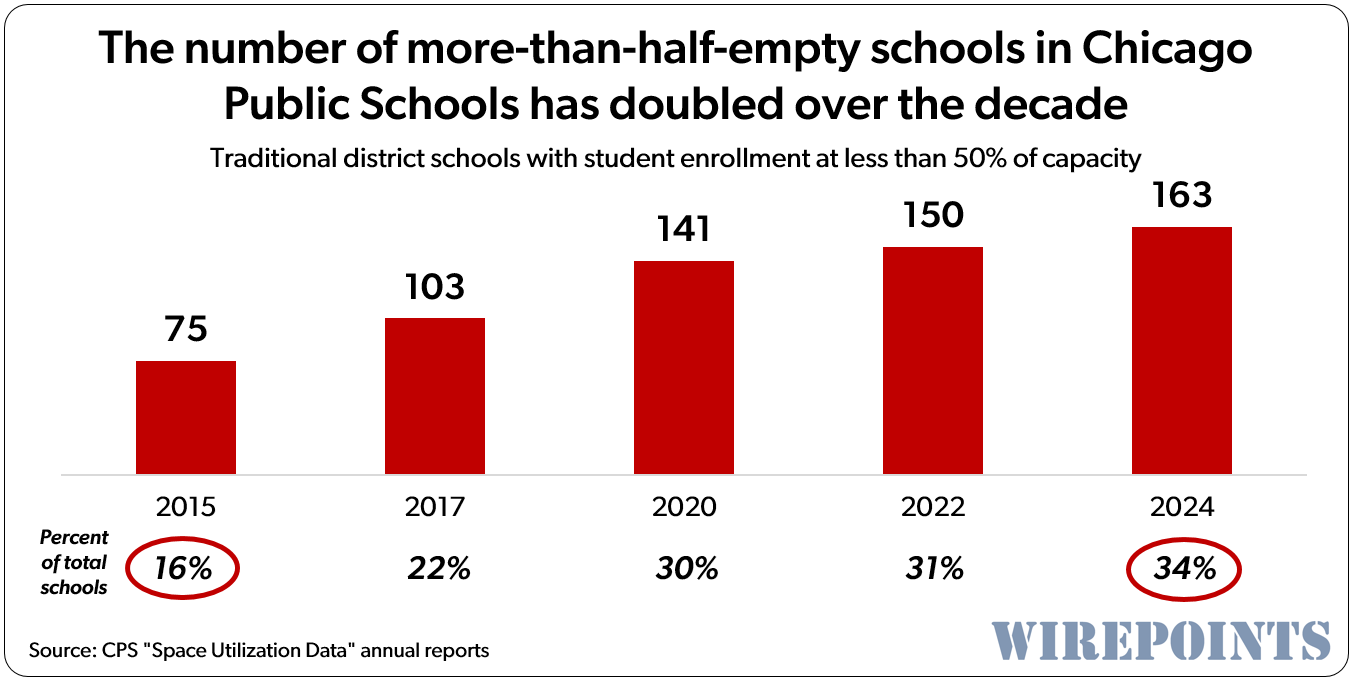By: Mark Glennon*
With the stroke of a pen last week the Illinois Supreme Court elevated subsidized healthcare insurance for public employees to a constitutionally unalterable pension obligation.
In an instant, its decision in Kanerva v. Weems expanded the unfunded pension liabilities to which the state constitutional ban on benefit reductions applies by at least fifty percent — over $50 billion. That’s just for the five state pensions. The ruling will apply, however, to the other roughly 650 public pensions in Illinois, including Chicago’s. The total dollar impact on them isn’t available yet and it’s not in the court’s opinion because cost doesn’t matter, they clearly said, and the government doesn’t bother to track those totals. But those pensions will probably add on another $15-20 billion to the impact.
When has any state court imposed so large a cost on its other branches of government? You’d have to dig and go way back. Until last week, healthcare subsidies for pensioners were widely presumed to be discretionary and likely to be cut. The impact of making them unalterable is as unprecedented as it is overwhelming.
The court based it’s ruling on, well, nothing, really, as explained in the single dissent from the opinion. The pension protection clause in the Illinois Constitution never mentions healthcare, insurance, premiums or the like.
Worst of all, the court indicated strongly that all pension benefits, including healthcare subsidies, cannot be cut by the legislature. A decision on that point is pending in a separate case on SB1, the reform bill passed last year for state pensions. The pension protection clause was aimed, the court said, at “protecting the right to receive the promised retirement benefits, not the adequacy of funding to pay for them.” That’s the kind of petty, emotional, comment you don’t see from unbiased judges writing rational opinions. It’s a straw man argument: Of course, the pension protection clause is not there to protect the adequacy of funding; nobody would say otherwise. It’s the kind of comment made by a court that has already made up its mind.
It’s also the kind of comment made by a biased court, and biased they are. They and their colleagues on the bench are all pensioners, and union campaign cash plays a huge role in their elections. SB1 doesn’t cover the judges’ pension — a silly fig leaf that supposedly eliminates any conflict of interest. In reality, the decision on SB1 almost certainly will set a precedent relevant to any subsequent attempt to reform the judicial pension.
Technically, though, it remains an open question whether pension benefits can be reduced by the legislature. It’s in that other case on SB1 where the Illinois Attorney General is arguing that the state’s “police power” overrides the pension protection clause in the constitution. The theory is that the state’s obligation to fund basic services trumps the pension protection clause, and the state cannot now do both. That’s challenging , but the best argument the AG has.
Which raises a troubling question: Why wasn’t the police power argued in the Kanerva case and appealed up at the same time, giving us a decision last week? The other case on SB1 probably wont be decided until early next year. Delay in deciding whether pension reforms are void is not in anybody’s interest except, we cynics think, politicians and pensioners who want to push it until after the election and use defeat to argue for higher taxes.
Perhaps Attorney General Lisa Madigan or the courts had some reason for letting the biggest issue go until after the election, but that reason is not apparent and nobody has bothered to ask. Since we taxpayers are represented by lawyers who are themselves pensioners some cynical questions are in order, and when our lawyer is named Madigan, well….
The glint of hope
Can opponents of real pension reform remain in denial? That’s the biggest question after Kanerva.
Fiscal realists know the state’s only hope is radical action on many fronts. Those actions include amending the constitution to eliminate the pension clause, and halting all further appropriations to pensions until real reform is in place. The Tribune was quick to call for that constitutional amendment. Hopefully, others will follow.
We’ll soon start hearing from legislators who supported phony reforms like SB1 and the Chicago pension bill. They’re no doubt still scratching their, um, heads, but perhaps many will realize their old script won’t work with anybody now.
It’s ‘lights out’ in Illinois if the state doesn’t come around now. Pensions are looting the state — that’s no exaggeration — and the pace of that looting is accelerating.
Abraham Lincoln said the best way to repeal a bad law is to enforce it strictly. In Illinois, we now have a horrific law that’s been expanded by an unprincipled court, and that court has demanded strict enforcement.
Either Lincoln will be validated or Illinois is doomed.
Mark Glennon* is founder of WirePoints. Formerly a lawyer, Mr. Glennon has taught as an adjunct at the University of Texas Law School.

 A set of state lawmakers want to extend CPS’ current school closing moratorium to February 1, 2027 – the same year CPS is set to transition to a fully-elected school board. That means schools like Manley High School, with capacity for more than 1,000 students but enrollment of just 78, can’t be closed for anther three years. The school spends $45,000 per student, but just 2.4% of students read at grade level.
A set of state lawmakers want to extend CPS’ current school closing moratorium to February 1, 2027 – the same year CPS is set to transition to a fully-elected school board. That means schools like Manley High School, with capacity for more than 1,000 students but enrollment of just 78, can’t be closed for anther three years. The school spends $45,000 per student, but just 2.4% of students read at grade level.
 Hopefully, all media will get the message, in Illinois, too.
Hopefully, all media will get the message, in Illinois, too. Ted joined Tom Miller of WJPF to talk about Illinois’ highest-in-the-nation property taxes, why lawmakers don’t want to touch the tax’s cost drivers, just how much Illinoisans’ tax burden has grown over the decades, why Gov. Pritzker failed to meet his promise to reform property taxes, and more.
Ted joined Tom Miller of WJPF to talk about Illinois’ highest-in-the-nation property taxes, why lawmakers don’t want to touch the tax’s cost drivers, just how much Illinoisans’ tax burden has grown over the decades, why Gov. Pritzker failed to meet his promise to reform property taxes, and more.
Great job on this. Impact still sinking in. Keep up the good work.
BANKRUPTCY, BABY !!!
Here are the Judges whom decided the case. Anne Burke (dissenting opinion), Charles Freeman, Rita Garman (Chief Justice), Robert Thomas, Lloyd Karmeier, Thomas Kilbride, Mary Jane Theis, and Robert Thomas. What’s the appointment process if Illinois Supreme Court Justice Lloyd Karmeier is not retained in the November 4, 2014 election? The purported concern in 1970 to adding the sentence to the constitution was lawmakers were not setting aside enough money for benefits. As usual in their shenanigans there was truth in their statement but it’s not the real reason the sentence was added. How do we know? The very next… Read more »
It’s conceivable, though it may take a few years, precipitated by failures in other basic services. First to come could be refusal — impossibility, really — of some municipalities to put money into their pensions.
After resident efforts to amend the Illinois Constitution regarding term limits and re-districting were put down, does anyone think a pension reform amendment will ever appear on an Illinois ballot?